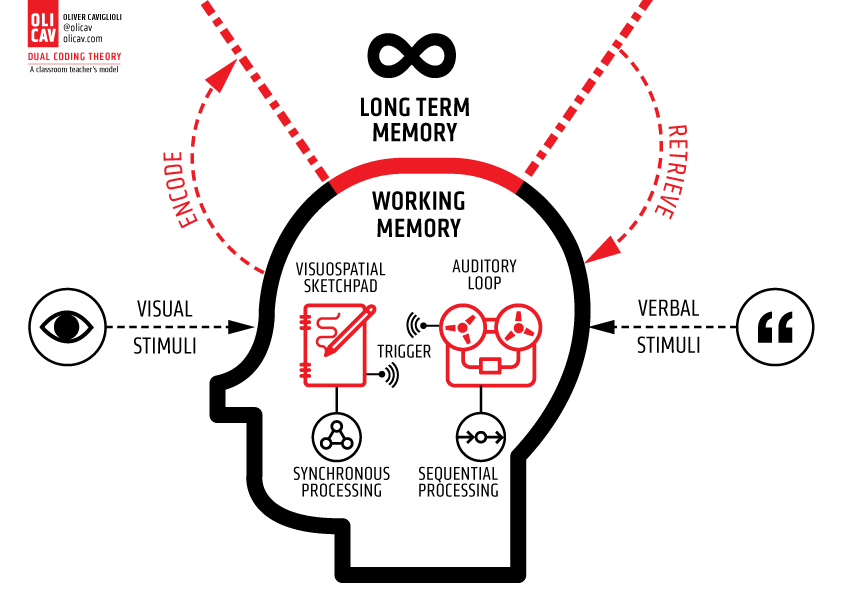
Last week at work I ended up in conversations with a colleague and couple curriculum specialists, and those conversations helped us figure out that we didn’t know the answer to what seems like kind of a basic question that involves cognitive psychology and reading comprehension. I decided to send the question to some cognitive psych folks (from the CogSciSci group), and the responses were fascinating.
Here’s the question we asked:
Question: which of the following scenarios would dual coding/working memory/cognitive load theory predict might be more useful?
- Scenario A: students listen to audio of their teacher reading a passage WHILE the students look at the passage, then answer reading comprehension questions about the passage (students process the audio and printed text in their working memories at the same time)
- Scenario B: students listen to audio of their teacher reading a passage THEN they look at the passage on their own, then answer reading comprehension questions about the passage (students process the audio in their working memories and then the text)
This seems like kind of a basic issue, right? If a teacher is going to read out loud to students, should the students have a copy of that text and read along with the teacher, or should the students listen first and then try to read the passage?
The cognitive psychologists we consulted surprised us: they immediately replied and they all agreed that cognitive load theory predicts that Scenario B is most likely to work the best. A couple quotes from their responses:
“Scenario A would run the risk of the Redundancy Effect (both sources of info using phonological loop).”
“Scenario B is better from a purely CLT perspective. Its also better as the students get two exposures to the content instead of one. In the real world there might be reasons that A is preferred like time constraints or the importance of linking the words spoken to their written words, like pronunciation”
And one of our cognitive psych friends referenced this thorough and fascinating blog post from David Didau: “The Problem with ‘Reading Along'” (bonus: this blog post manages to reference a 4th century bishop AND farting!)
I love that cognitive psych (specifically Cognitive Load Theory – CLT) can point us in the right direction about many of these “basic” questions about pedagogical choices. When we’re reading out loud, we should think about what our goals are (reading comprehension, or linking spoken works to written words), and use CLT to figure out whether students should read along with us or listen first and then read it on their own.